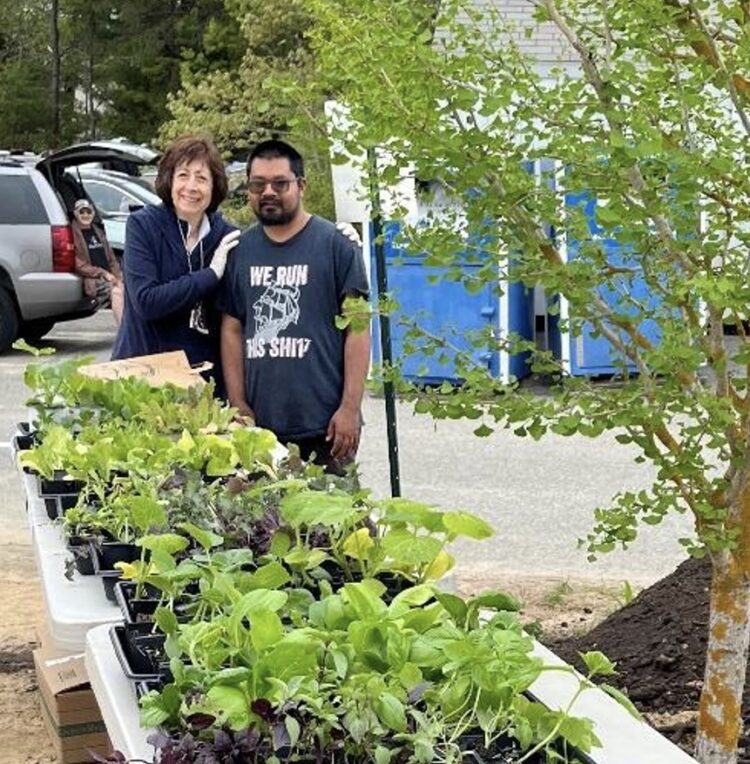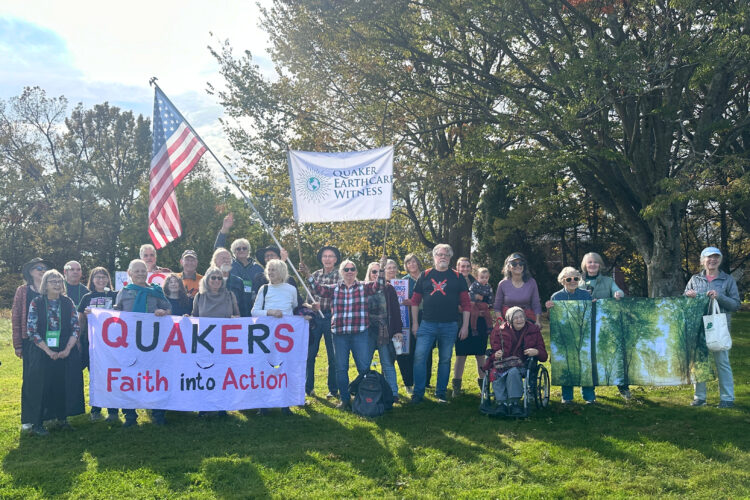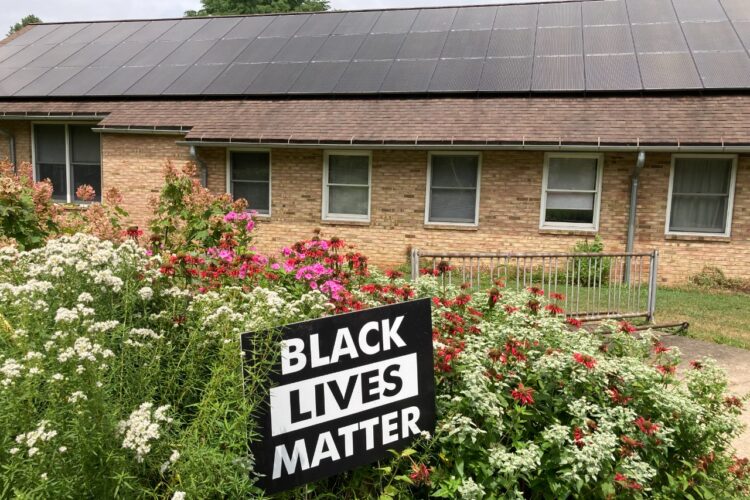Joy at the Intersection of Earthcare, Gospel Ministry, and Community
Stephen C. Gates
Several years ago, I started a regenerative vegetable garden in the sunniest place on my property. Little did I know then that the garden, immediately next to the street, would lead to what I now understand to be my calling. The seminal moment came when I was working in that garden, and the father of one of my neighbors walked by. He appeared very interested in my garden, but didn’t speak much English, so I motioned him over, pulled a big head of romaine lettuce from my garden, and handed it to him. The surprise on his face was amazing!
The joy – for both of us – of this small gift made me think about ways to share produce with others in my neighborhood. I started by giving food to other passing neighbors. But soon I was talking with them about how they could grow their own vegetables. And several of those conversations led them to start their own gardens.
Based on those roadside experiences, I started a project called Friendship Gardens of Cape Cod at my local meeting (West Falmouth Preparative Meeting) to provide vegetables to those in our community who are food-insecure and to help them grow their own. We rejuvenated a fallow garden on the meeting’s property and employed regenerative gardening techniques (organic, no-till, cover crops or mulch, and carbon sequestration in the soil) in our 300 sq. ft. of beds to grow a full range of fresh, organic vegetables.
Our volunteers quickly formed a small, tightly knit community, often through shared al fresco meals before gardening sessions. Every week for an entire season, we delivered food to the Falmouth Service Center, our local food pantry, where it was handed out to clients.
At the end of the season, we felt ready to tackle the other part of our original plan: to help clients of the Service Center learn to grow their own vegetables. We made two initial decisions that served our clients well: we chose to interact directly with them, and we decided it needed to be fun.
The Service Center suggested we partner with them on a pilot project at their site. Our focus then turned to raising funds for the proposed pilot, and we applied to both the Susan B. Kirby fund of Sandwich Quarterly Meeting and to QEW for mini-grants. We were ecstatic when we got both grants, and a Friend offered to match them. We developed a plan for using the money: a 9-week test at the Service Center during which we would share food we had grown and simultaneously help clients grow their own vegetables. We planned to give away seeds, plants, soil, pots, pre-built raised beds, and custom LED étagères. During our preparation, another Quaker meeting, East Sandwich Preparative Meeting, was inspired to start its own Friendship Gardens project, and we helped them establish beds to grow food for the Wampanoag homeless shelter.
In mid-March, we planted our spring crops – primarily lettuce, spinach, kale, collards, and radishes – under row covers to help protect them from any late frosts. In late April, we began harvesting. On Fridays, we stood at an outdoor table, handing out food, growing supplies, and information. And, very importantly, we spent time interacting with each client. At the beginning, we had to approach the clients to tell them what was being offered, but by the end of our pilot, they would show up eagerly asking what we had that week.

We tried to make our offerings appealing – an important way to encourage clients to come to our table was to hand out fresh, regenerative organic vegetables. Almost every week, we had an activity designed to be fun and, when the weather warmed up, to encourage the clients to grow their own food. Offerings included:
- Distribution of free plants, giving away hundreds of seedlings of lettuce, kale, and chard.
- “Tomato Fest,” where we handed out close to 200 tomato plants and offered taste tests of homemade gazpacho.
- Potted plants for those without gardens, including potatoes and cucumbers.
Overall, our pilot served between 70 and 80 food-insecure individuals. As I reflect on our pilot, I think four things were critical to our success:
- Building community: Our potlucks and conversations in the garden with volunteers, and combining free food, free plants, and positive conversation for clients was the most important outcome of our pilot.
- Making it fun: Next time, we’ll do even more fun things like the taste tests we did this year, and hand out recipes for inexpensive, easy-to-prepare food tied to the produce we have that week.
- Raised Beds: The raised beds played a very important role when used in institutional settings (the homeless shelter and the Quaker meeting), and where commitment was high amongst the individuals caring for the beds.
- Gardening Basics: We learned that few of the FSC clients were gardeners, so our major success was in getting them started with gardening.

As I reflect on the pilot, I am struck by how the humble act of giving a head of lettuce to a stranger on the street has, for me, become a calling. It isn’t just that I enjoy helping the earth by using regenerative techniques, or that we are called in Mathew 25:31-40 to help feed the hungry, or that we built community. It is the joy that lies at this intersection of Earthcare, Gospel Ministry, and Community that motivates me to go forward. And knowing that the number of people who are food-insecure is likely to increase significantly in the near term, I am motivated to find others who will start Friendship Gardens in their own communities.
Steve Gates is a retired research computer scientist who has also been a college professor of biochemistry and a high school science teacher. He has spent his retirement focused on climate change and, more recently, food insecurity. His project was awarded a QEW mini-grant in 2024. If you’d like to get his guide to starting your own Friendship Garden, contact him at scgates1@sbcglobal.net.


